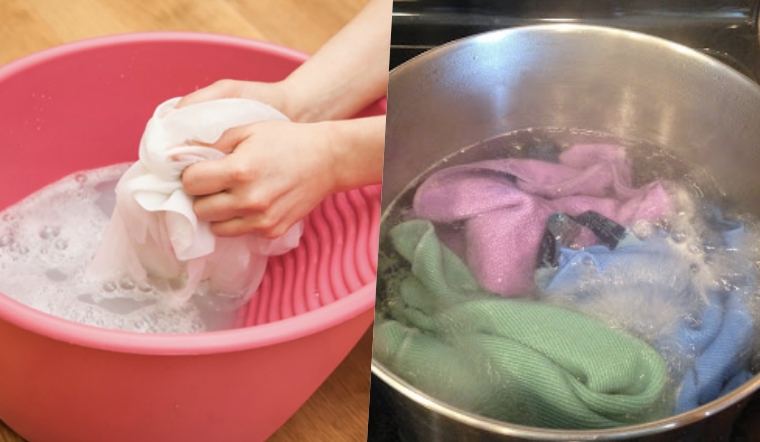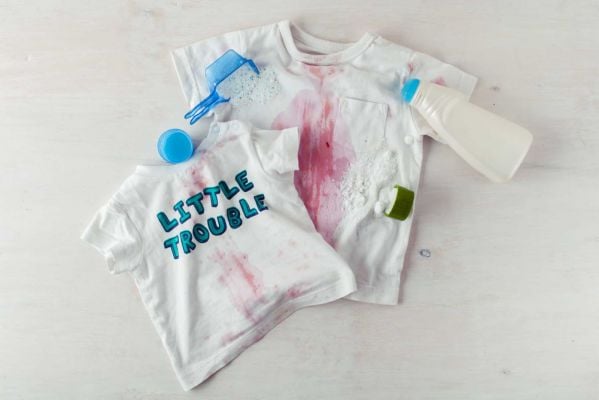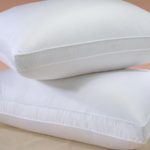Many people are excited about new clothes and want to wear them right away, even after trying them on at the store. However, it is not advisable, especially when you take the clothes that have been hanging at the counter and have been tried on by many people.

Not necessarily beautiful when worn immediately
Wearing them immediately can cause the clothes to not have a natural shape because they haven’t softened back. For example, leather clothes that have been stored for a long time are often stiff, so you need to soften them before wearing. Some clothes, especially fabric ones, will stretch back to their natural shape after being washed, which takes the longest time.
Chemical residue
When fabrics are brought to the market, manufacturers often use formaldehyde to keep the fabric wrinkle-free, resistant to erosion, and mold. Therefore, you should wash them before wearing to avoid contact with this chemical. Leaving clothes for a long time will expose them to bacteria, viruses, dust, fabric lint, etc., so washing them will make them cleaner and reduce the risk to your skin and respiratory system.
Reducing dye
Colored clothes may have excess dye, which will fade during the washing process. If you wear them immediately, a large amount of dye can stick to your skin, especially when sweat is secreted. Or the color of the clothes may bleed onto each other while wearing. For example, the color of the pants seeping into the white shirt… This not only makes you embarrassed but also potentially harms your skin.

Bacteria causing diseases
New clothes can be contaminated with bacteria from other people touching, feeling, and trying them on. Moreover, the storage process can also cause bacterial contamination. Therefore, you should wash them to ensure cleanliness.
Fashion flaws
Washing is a relatively strong impact on your clothes. If there are stitching or other flaws, they will show up when washing. Sometimes when buying, you may not pay attention to all of them. Therefore, washing will help you avoid this mistake while wearing.
Proper wrinkle treatment
Some new clothes may have wrinkles. If you wear them immediately after washing, it means you are wearing them when they are still dusty and dirty. This is not good for the fabric and makes it stiffer. Some natural fabrics are prone to wrinkles but can be easily flattened with water, so washing them and then wearing them again is even more necessary. For example, silk, linen, and cotton fabrics are prone to wrinkles but can be easily flattened with water, so washing and flattening will help the fabric look more natural instead of using an iron.
Furthermore, many sets of clothes have fine fabric lint, and washing them will make the colors look better than before washing.

Notes when washing new clothes
On each special high-end item, there are always complete instructions on how to hand wash or machine wash, dry-clean or wet-clean, the acceptable temperature, etc. You should read and follow them to maintain the shape of the garment.
8 Common Mistakes People Make with Cutting Boards
Are you using your cutting board correctly? Many Vietnamese households rely on cutting boards in their kitchen, but not everyone knows how to use them properly, especially when it comes to wooden cutting boards. Check out these 8 mistakes to avoid when using a cutting board to ensure both hygiene and safety for everyone in your family.



































